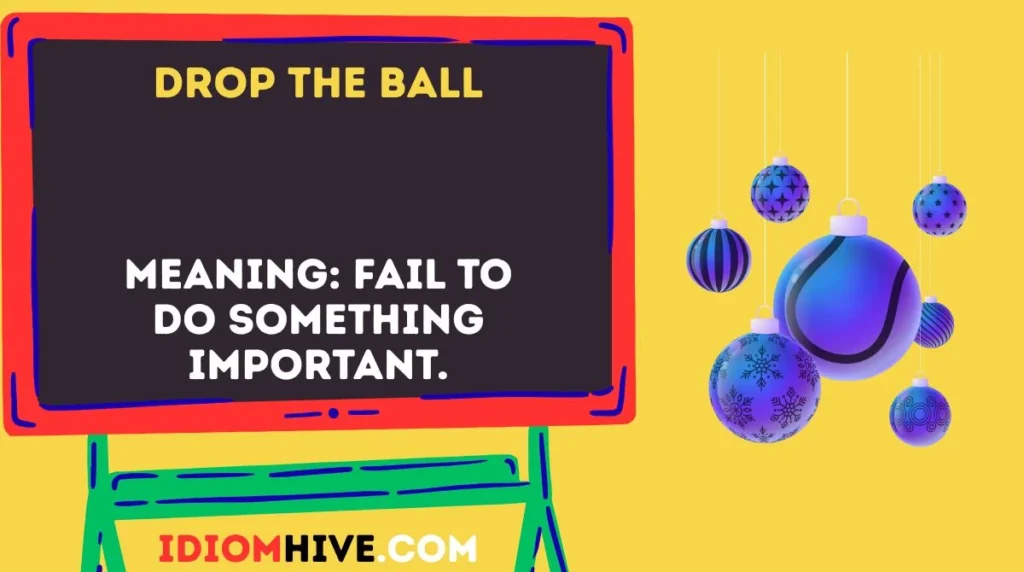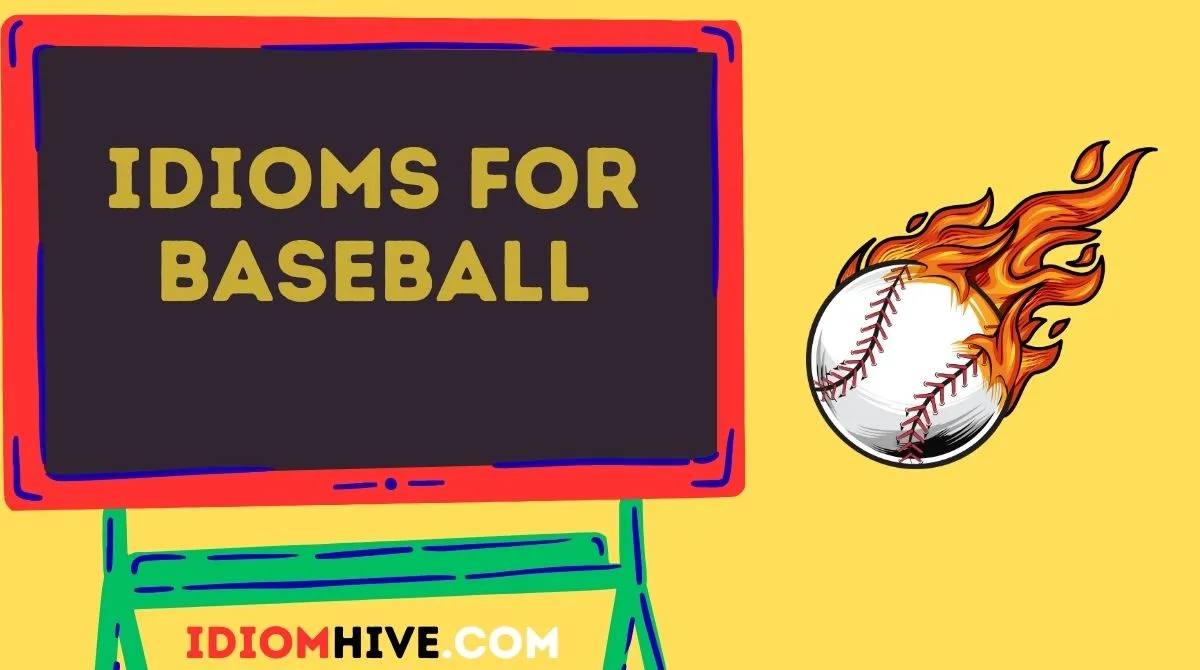Baseball isn’t just America’s national pastime — it’s also a huge influence on the English language. Over the years, many expressions from the sport have found their way into everyday conversations, business meetings,
and even global English usage. These expressions are called idioms. Idioms are phrases that don’t mean exactly what the words say but carry a figurative meaning.
For learners of English, baseball idioms are particularly useful because they appear often in movies, books, workplaces, and casual chats. Even people who have never watched a baseball game still use them in daily life.
Whether you want to sound more natural in conversations, add color to your writing, or understand native speakers better, knowing idioms for baseball is a powerful tool.
So, let’s step up to the plate and explore some of the most popular baseball idioms in English!
Did You Know?
Baseball idioms became so popular in American English during the 20th century that even people outside the U.S. began using them. Today, phrases like “step up to the plate” and “out of left field” are used worldwide — even in countries where baseball is rarely played.
Baseball Idioms About Starting and Trying
Step up to the plate

Meaning: Take responsibility or accept a challenge.
Example: It’s time for you to step up to the plate and lead the project.
Similar idiom: Rise to the occasion.
Note: Common in business and motivational contexts.
At bat
Meaning: Having a chance to act or take a turn.
Example: Don’t worry, you’ll get your chance at bat soon.
Similar idiom: Your turn.
Note: Used casually when someone is waiting for their chance.
Lead off hitter
Meaning: The first person to start something.
Example: She was the lead-off hitter in presenting the company’s new idea.
Similar idiom: First mover.
Note: Popular in business or team projects.
In the big leagues
Meaning: Competing at a high or professional level.
Example: With this promotion, you’re officially in the big leagues.
Similar idiom: At the top.
Note: Common in careers, sports, and business.
Pitch in
Meaning: Help out or contribute effort.
Example: Everyone needs to pitch in to finish this task on time.
Similar idiom: Lend a hand.
Note: Everyday informal use.
Throw your hat in the ring
Meaning: Announce you’re entering a competition or challenge.
Example: She decided to throw her hat in the ring for the leadership position.
Similar idiom: Enter the race.
Note: More formal, used in politics and business.
Play ball
Meaning: Cooperate or start working together.
Example: If we want success, both departments need to play ball.
Similar idiom: Work together.
Note: Used in negotiations or teamwork.
Baseball Idioms About Success and Achievement
Hit it out of the park
Meaning: Do something extremely well.
Example: Her presentation really hit it out of the park.
Similar idiom: Knock it out of the park.
Note: Widely used for praise in both work and casual talk.
Grand slam
Meaning: A big, total success.
Example: The new product launch was a grand slam.
Similar idiom: Huge win.
Note: Common in sales and business.
Touch base
Meaning: Make contact with someone briefly.
Example: Let’s touch base next week about the project.
Similar idiom: Check in.
Note: Extremely common in professional communication.
Ballpark figure
Meaning: An estimated number.
Example: Can you give me a ballpark figure of the costs?
Similar idiom: Rough estimate.
Note: Mostly business and finance.
In the ballpark
Meaning: Close to the correct answer or estimate.
Example: Your guess is in the ballpark.
Similar idiom: About right.
Note: Informal but also used in business.
Home run
Meaning: A great achievement or success.
Example: Her new idea was a home run for the team.
Similar idiom: Big win.
Note: Often used to describe major successes.
Cover all the bases
Meaning: Prepare for every possibility.
Example: We need to cover all the bases before launching this campaign.
Similar idiom: Leave no stone unturned.
Note: Professional, planning context.
Right off the bat
Meaning: Immediately, without delay.
Example: Right off the bat, I knew the deal was perfect.
Similar idiom: Straight away.
Note: Casual everyday use.
Step into the batter’s box
Meaning: Get ready to begin.
Example: Now that we’re prepared, let’s step into the batter’s box.
Similar idiom: Get started.
Note: Encouraging and motivating.
Baseball Idioms About Struggles and Mistakes
Strike out
Meaning: Fail at something.
Example: He struck out in his first business attempt.
Similar idiom: Fall short.
Note: Common in casual and professional use.
Three strikes and you’re out
Meaning: Limited chances before facing consequences.
Example: This is your last warning — three strikes and you’re out.
Similar idiom: Final chance.
Note: Used in rules or warnings.
Swing and a miss
Meaning: A failed attempt.
Example: That was a swing and a miss in negotiations.
Similar idiom: Miss the mark.
Note: Informal, often humorous.
Out of left field
Meaning: Unexpected or unusual.
Example: His idea came out of left field, but it worked.
Similar idiom: Out of nowhere.
Note: Used casually or in business brainstorming.
Error
Meaning: A mistake or blunder.
Example: That email was a major error.
Similar idiom: Slip-up.
Note: Casual and business contexts.
Drop the ball

Meaning: Fail to do something important.
Example: He really dropped the ball on that project.
Similar idiom: Mess up.
Note: Informal but very common.
Foul ball
Meaning: Something that doesn’t count or is not acceptable.
Example: That suggestion is a foul ball — let’s rethink it.
Similar idiom: Invalid attempt.
Note: Used casually.
Beanball
Meaning: A harmful or aggressive move.
Example: That comment was a beanball aimed at his colleague.
Similar idiom: Low blow.
Note: Informal, sometimes sarcastic.
Off base
Meaning: Completely wrong.
Example: Your assumption is way off base.
Similar idiom: Wrong track.
Note: Daily conversations and business.
Baseball Idioms About People and Roles
Team player
Meaning: Someone who works well with others.
Example: She’s a real team player in the office.
Similar idiom: Cooperative person.
Note: Common in work settings.
Heavy hitter
Meaning: An important or powerful person.
Example: He’s one of the heavy hitters in the industry.
Similar idiom: Big shot.
Note: Business and politics.
Pinch hitter
Meaning: A substitute for someone.
Example: I’ll be the pinch hitter for tomorrow’s meeting.
Similar idiom: Stand-in.
Note: Informal, often work-related.
Utility player
Meaning: A flexible person with many skills.
Example: She’s the utility player of our office.
Similar idiom: Jack of all trades.
Note: Used in work or casual speech.
Rookie
Meaning: A beginner or newcomer.
Example: He’s still a rookie in this job.
Similar idiom: Newbie.
Note: Informal everyday usage.
Veteran
Meaning: An experienced person.
Example: She’s a veteran in marketing with 20 years of experience.
Similar idiom: Old hand.
Note: Used respectfully in formal contexts.
Coach
Meaning: A mentor or guide.
Example: Our manager acts like a coach for the team.
Similar idiom: Guide.
Note: Common in business and self-development.
Batting average
Meaning: A record of success rate.
Example: His batting average in sales is impressive.
Similar idiom: Track record.
Note: Professional contexts.
Keep your eye on the ball
Meaning: Stay focused.
Example: You need to keep your eye on the ball if you want success.
Similar idiom: Stay on track.
Note: Informal motivational use.
How to Use These Idioms in Daily Life
- Speaking: Use idioms like drop the ball or hit it out of the park in casual conversations to sound more natural.
- Writing: In emails or reports, idioms like touch base and ballpark figure add a professional yet friendly tone.
- Professional settings: Idioms such as step up to the plate and cover all the bases motivate teams and show leadership.
The key is to choose idioms that match the situation and audience.
Common Mistakes Learners Make With Idioms
- Wrong context
❌ He hit it out of the park when he failed the test.
✅ He hit it out of the park with his great presentation. - Too literal
❌ Let’s touch base on the baseball field.
✅ Let’s touch base tomorrow about the report. - Mixing idioms
❌ She dropped the ballpark figure.
✅ She dropped the ball on the project.
FAQs
1. Do I need to know baseball to understand these idioms?
No. Most people use them even without playing or watching baseball. They’ve become part of everyday English.
2. Are baseball idioms formal or informal?
Some are casual (out of left field), while others are used in business (touch base). It depends on the situation.
3. Why are baseball idioms so popular in English?
Because baseball was once the most popular American sport, its language naturally entered everyday speech.
4. Can I use baseball idioms in professional emails?
Yes, but choose carefully. Phrases like ballpark figure and cover all the bases are safe for business.
5. Are baseball idioms used outside the U.S.?
Yes. They appear in international English, especially in business and entertainment.










